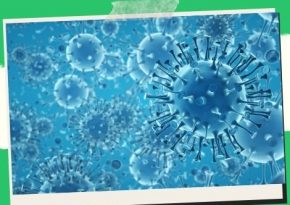
DENR will work to create sustainable communities and promote green recovery
As it develops its portfolio of environmental projects for consideration under the 8th financing replenishment of the Global Environment Facility, the Philippines will create resilient, inclusive, and sustainable communities after the epidemic (GEF-8).
The Philippines will get the greatest funding support allocation to date, totaling over USD52 million.
In her opening remarks at the beginning of the two-day GEF National Multi-Stakeholder Dialogue in Taguig City on January 18-19, DENR Secretary Antonia Loyzaga stated that the Philippines continues to face more complex challenges in order to achieve ecosystem integrity and improve climate and disaster resilience.
The GEF National Multi-Stakeholder Dialogue is seen by Loyzaga as a chance to create programs that address the nation’s environmental priorities and issues.
According to Loyzaga, an advocate for climate and disaster resilience, “The healthy planet, healthy people framework, as the heart of the overall global GEF-8 architecture, emphasizes the critical connection between humanity and the environment – thus, the importance of urgent environmental threats reduction and protection of our natural resources to improve human well-being (cannot be overemphasized).”
The DENR Secretary had a courtesy visit from the GEF Secretariat on January 17 prior to the discussion.
In order to address the intersectionality of development, climate change, biodiversity, and disaster resilience, Loyzaga said the Philippines deeply values the consultative process. The country has adopted a comprehensive risk management strategy that incorporates a system lens and maximizes the resources available to improve quality of life, according to the DENR chief, which “will ensure that no community and ecosystem is left behind.”
Since the GEF-8 calls for a systematic and transformative strategy that responds to the urgency of raising global climate ambition, she stated that the Philippines will cooperate with the GEF in strengthening national commitments and institutionalizing capacities to translate these commitments into meaningful actions to support sustainable development.
Member nations of the GEF-8 are urged to focus more of their programming on the 11 Integrated Programs, which cover food systems, landscape restoration, clean and healthy oceans, circular solutions to plastic pollution, removing dangerous chemicals from supply chains, net-zero, nature-positive accelerator, sustainable cities, greening infrastructure development, and wildlife conservation for development.
The goal of the multi-stakeholder debate was to spark talks about finalizing the Philippines’ GEF-8 portfolio in line with the programmatic and strategic positioning of the GEF-8.
The projects under the GEF-8 will be carried out over a four-year period, from 2023 to 2026, by national government agencies, local government units, development partners, non-governmental and people’s organizations, scientific institutions and academe, and other stakeholders, using a whole-of-society approach.
The Foreign Assisted and Special Projects Service of the DENR and the Office of the Undersecretary for Finance, Information Systems, and Climate Change, the nation’s national focal point for the GEF, must coordinate the implementation.
By tackling the causes of ecological degradation, supporting integrated approaches, ensuring that programs are inclusive and prioritize the most vulnerable, fortifying the nation’s commitments to multilateral environmental agreements, and contributing to global environmental benefits, the DENR hopes to advance the nation’s efforts to address environmental challenges.
The GEF-funded projects are anticipated to reallocate private sector funding to achieve a larger size and impact while empowering local communities to utilize their resources and capacities to safeguard livelihoods, improve socioeconomic circumstances, and increase resilience.
The GEF has played a significant role in helping the nation since 1992 in achieving the worldwide environmental advantages inherent in numerous international environmental agreements.
Since the pilot phase up through its Seventh Replenishment Cycle, 128 GEF-funded projects in the Philippines have been approved, spanning the five focal areas of biodiversity, climate change mitigation, land degradation, chemicals and waste, and international waterways (GEF-7).
Save/Share this story with QR CODE
Disclaimer
This article is for informational purposes only and does not constitute endorsement of any specific technologies or methodologies and financial advice or endorsement of any specific products or services.
📩 Need to get in touch?
📩 Feel free to Contact NextGenDay.com for comments, suggestions, reviews, or anything else.
We appreciate your reading. 😊Simple Ways To Say Thanks & Support Us:
1.) ❤️GIVE A TIP. Send a small donation thru Paypal😊❤️
Your DONATION will be used to fund and maintain NEXTGENDAY.com
Subscribers in the Philippines can make donations to mobile number 0917 906 3081, thru GCash.
3.) 🛒 BUY or SIGN UP to our AFFILIATE PARTNERS.
4.) 👍 Give this news article a THUMBS UP, and Leave a Comment (at Least Five Words).
AFFILIATE PARTNERS

World Class Nutritional Supplements - Buy Highest Quality Products, Purest Most Healthy Ingredients, Direct to your Door! Up to 90% OFF.
Join LiveGood Today - A company created to satisfy the world's most demanding leaders and entrepreneurs, with the best compensation plan today.



 Business Technology, Finance Technology & Information Technology
Business Technology, Finance Technology & Information Technology





